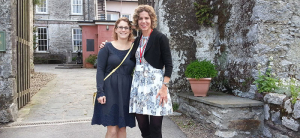Doubts of professional role confidence or "imposterism" is a rarely explored issue among academics. A research study conducted by Dr. Holly Hutchins, "Outing the Imposter: A Study Exploring Imposter Phenomenon (IP) among Higher Education Faculty", was published April 24 2015 in the journal New Horizons in Adult Education and Human Resource Development.
Results of the pilot study (61 faculty) suggest that higher education faculty experience moderately high levels of imposter phenomenon, with the highest reported by untenured faculty. Findings also indicated that emotional exhaustion is positively related to IP, and faculty reporting moderate-high levels of IP also reported greater use of adaptive coping skills to address imposter thoughts.
Hutchins' other research, "Coping with the Imposter: The Role of Mentoring and Other Coping Skills Among Academic Faculty" is an extension of a much larger comparative study involving over 300 faculty at two major research institutions. Dr. Hutchins and her graduate assistant Hilary Rainbolt presented their study results at the University Forum for Resource Development (UFHRD) conference. The study focused on critical incidents gathered during faculty interviews that focused on the events that triggered imposter experiences and the role of social support (mentoring) and other coping (self-directed) that helped mitigate such experiences. The paper was recognized as a finalist for the Alan Moon Memorial Prize, which honors the best refereed paper at the conference.
